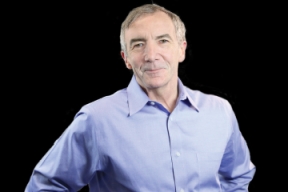Leland Teschler – Executive Editor
On Twitter @ DW—LeeTeschler
Suppose you were the one who set the prices your company charged for its products. Further suppose two of your chief competitors called and suggested the three of you collude on a bid for an upcoming contract. Simply put, they wanted to engage in price fixing. Price fixing is not just unethical but also illegal. People have gone to jail for it. So of course, in this hypothetical example, your reply would be a forceful no.
Most business professionals could probably give a sophisticated and carefully reasoned  argument against engaging in this kind of illegal action. But the evidence is that the same individuals who can state a good case for acting honestly may also be the ones who end up behind bars for ethical lapses.
argument against engaging in this kind of illegal action. But the evidence is that the same individuals who can state a good case for acting honestly may also be the ones who end up behind bars for ethical lapses.
Eugene Soltes, a Harvard Business School professor, noticed this ambiguity when he studied white-collar criminal cases. He summarized his findings in a book called Why They Do It. “No student graduates with a plan to become successful and then, later, to engage in some fraudulent behavior that could lead to prison and professional ruin. Yet, even at (HBS), where every student has the intellectual capacity to successfully resolve and avoid decisions that could lead to prison, there have been more than two dozen graduates who’ve engaged in white collar crime,” he writes.
Soltes points out that it’s easy to see decisions that deserved more attention in hindsight, but not in the heat of the battle. And that’s one of the problems with trying to teach ethics in a classroom: “Most of the significant challenges associated with decision making have already been vastly simplified or eliminated by identifying the salient issues. So the judgments reached during classroom discussions of ethical dilemmas can reflect a decision-making process that bears no resemblance to one used to resolve such dilemmas in day-to-day life,” he says.
It’s easy to see how things can go awry when there is a fine line between criminal behavior and innovative solutions to business problems. For example, some of today’s most noteworthy entrepreneurial efforts have arisen out of exploiting loopholes in regulations, or in interpreting regulations aggressively to get around business obstacles. Once people get in the mindset of finding ways around legal or regulatory obstacles, the boundaries between what’s illegal and legal can become blurry. Worse, the media tends to celebrate entrepreneurs who exploit loopholes and applauds them as being inventive. But sometimes courts interpret these kinds of shenanigans as simply being unlawful.
Of course, engineers get involved in their share of ethical dilemmas. Evidence is that they are just as prone to heat-of-the-moment lapses as anyone else. Perhaps the most notorious example might be that of 1970s-era Ford Pintos bursting into flames when rear ended.
Dennis Gioia, now a professor at Penn State, was a vehicle recall coordinator at Ford when the Pinto problem emerged. He says all his available patterns and experiences at the time suggested that the Pinto case was not a red flag. Among other things, frequencies of occurrence were low and comparable to those of kindred models. Apparently, the engineers involved had similar reactions. Gioia says this cognitive “short cut” let him process the Pinto case and move on to others. He now teaches the Pinto case to MBA students as a cautionary tale about ethical considerations.
Rachelle Hollander, director of the National Academy of Engineering’s Center for Engineering Ethics empathizes with engineers in situations like that which unfolded at Ford. “Ethics is thought of as a deliberative practice that needs to be worked on over time. I have great sympathy for people who don’t realize they are doing something unethical until it is pointed out to them,” she says.
And in today’s high-pressure/fast-to-market climate, there’s often little time to reflect on the ethics of any single decision. As Hollander observes, “People don’t want to do the wrong thing, but they are often not in an environment that encourages them to do the right thing or that helps them figure out what the right thing is.”
Filed Under: Commentaries • insights • Technical thinking





As the Director of the first ministry in the U.S. created to support individuals and families with white-collar and nonviolent incarceration issues, and as someone who served time in a Federal prison for a white-collar crime I committed when I was a lawyer, I can state unequivocally that Professor Soltes’s methodology and his conclusions are “pure rubbish.” Why They Do It, and the press releases and media attention surrounding it, are shamelessly exploitive and are designed solely to sell books; they inflame bigotry and hatred and paint people with a broad brush designed to promote stigma, shunning and Schadenfreude (unfortunately, themes for our time it seems).
I am sure if we re-interviewed his subjects, most or all would say they had been duped into letting down their guards in sharing intensely personal details of their lives and feelings on the promise and belief that Soltes’s book would be fair and balanced. If indeed he disclosed to them that he was writing a book at all?
We have worked with hundreds of men, women and families involved in and suffering from these matters, and most are not the subjects of the sensationalized headlines that Soltes claims to have interviewed. In fact, the overwhelming majority are ordinary people, professionals who live down the street, whose children play with yours, who simply got in over their heads due to desperation, addiction, compulsion or mental illness. Most didn’t have the ego strength to simply talk to their spouses and admit that life was not going the way they had hoped and dreamed, until they had stepped over the line and it was too late.
Contrary to Soltes’s core thesis statement, most have been mired in shame, guilt and remorse even before they were caught. It is terrifying and exhausting to spend their lives looking over their shoulders knowing that they’ve done something that far wrong. Whether they aware of it or not, almost all go through some kind of transformation from a material life to a more spiritual one. What other choice do they (we) have?
Although I probably have “interviewed” 4 or 5 times as many people accused or convicted of white-collar crimes and their families, I’m not arrogant enough to assert that I understand “why” anyone did or does anything. But then again, I didn’t write a book claiming I do. Note the clever, and frightening, [person change in] the title of the Professor’s book: why THEY do it: inside the mind of THE white-collar criminal! Aren’t we a society that has fought against, and protected people from, this sort of propaganda that aggregates and assigns characteristics to an entire class of people in order to marginalize them and promote fear of them?
Our society has evolved enough that mass incarceration and related topics are now dinner-table conversation; they are finally part of the national debate. I am glad that we give many violent criminals a second chance, and indeed all of God’s children deserves our empathy, compassion and kindness. But white-collar criminals have little such chance, largely because of the kind of book written by Professor Soltes.
We can do better.
Rev. Jeff Grant, JD, M Div
Founder/Director, Progressive Prison Ministries, Inc., Greenwich CT & Nationwide, prisonist.org
I am a little surprised at your reaction to Soltes’ book. I didn’t get the sense that it was “exploitive” when discussing the mindset of the people involved in the incidents it describes. I think the portrait that emerges is one of ordinary people swept up in decisions that they didn’t stop to sufficiently consider ahead of time. I believe that is the cautionary tale being told here.
I also believe it is noteworthy that Soltes brings up the shortcomings of ethics courses now taught to business students and professionals. Clearly, real-life ethical decisions are more complicated than how they are portrayed in these courses. In that regard, people who complete ethics courses may be getting a false sense of security about how they will react when confronted with real ethical dilemmas.
I have worked at a company that may have been guilty of price fixing, and was absolutely guilty of wage fixing. Several companies in the exact same field agreed to pay their applications people exactly the same so that employees would not move around and bid up the pay scale. Test Products Incorporated (TPI) was the one that I worked for, William Cristonson was one competitor, and there were a few others. BY keeping the pay rate down they were able to underbid any outsiders as well. I don’t know if GM, the main customer, was aware of this or not. Since this was during the early part of the Lopez era at GM, probably it did not matter to the customer.
I have no evidence that would stand up in court, but it should be fairly obvious that serious competitors would be willing to pay at least a bit more for a serious advantage over the others. The only individual who did have real evidence was named Alex P.